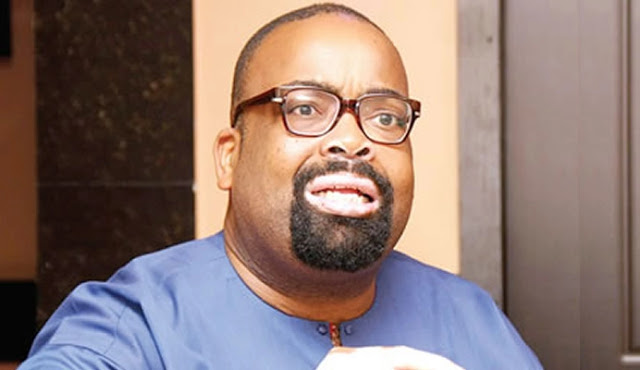 |
| Olumide Akpata |
*Says ‘Politics can’t be kept out of appointment of judges’
*As Sagay, Falana, others weigh in
The President of the Court of Appeal, Monica Dongban-Mensem, on Tuesday, faulted recent critical comments of the President of the Nigerian Bar Association (NBA), Olumide Akpata, about the ongoing process of appointing 18 justices for her court.
Ms Dongban-Mensem, who spoke at a webinar organised by the Presidential Advisory Committee Against Corruption (PACAC), said contrary to Mr Akpata’s assertion, there was nothing wrong with appointing Justices in anticipation that they would learn on the job.
Mr Akpata had recently criticised the shoddiness of the interview conducted for the candidates by the National Judicial Council (NJC), which he said hurriedly interviewed 20 nominees within two hours.
The NBA president, a member of the NJC who was participating in the council’s interview of judicial nominees for the first time, also expressed shock that “Important legal issues that were occasionally put to the nominees could not be answered”.
He said he heard things like “they will learn on the job” during the interview.
But speaking at the virtual ‘Roundtable on Jurisprudence and Philosophy of Judgments in the Nigerian Legal System’ organised by PACAC, Ms Dongban-Mensem said it was normal for Justices to learn on the job, as applicable to other types of job.
She said, “Somebody said there is room for learning and the President of the Nigerian Bar Association took offence that somebody said that people will learn on the job. Who doesn’t learn on the job?
“Professor Sagay, did you know everything you should do when you were appointed as chairman of PACAC? Has he not learnt some things? Has he not started looking at some other things differently?”
She said the inability of a candidate to answer a question on a particular subject was not sufficient grounds to deny ”that person the opportunity of being elevated to a higher court’s bench”.
She said, “I mean, we all learn. In the Court of Appeal, we sit in panels and we help each other. Somebody may know more about something. Some of the Justices of the Court of Appeal may not have had the privilege of sitting on maritime cases.
“Will you deny them the opportunity of being appointed on the Court of Appeal bench because they do not know the meaning of maritime law? Don’t they know other things? Will they not learn from others?
“These are some of the things that inform our decisions. So, people should be a little bit kind with the judiciary when they go out and try to criticise and throw everything away.”
She said despite the barrage of attacks on judges, “I can assure you that there are men and women of integrity in the judiciary.”
She also said there was nothing wrong in politicians’ lobby for the appointments of candidates from the constituencies as judges.
“The interests are varied. We are different parts of the nation. You cannot keep politics out of the appointment into the judiciary,” she said.
She added that while politicians were within their rights to lobby for their preferred candidates, the judiciary had always ensured that the best candidates emerged.
The Appeal Court president said, “They are representing their people. So, you can’t stop politicians from advocating for (sic) people from their regions to be represented in judicial appointments.
“But I can assure you, that is not what guides. We look at all of these things and take the best. If our bests have not been good enough, there is room for improvement, we are still learning, we have not closed the bus.”
Various speakers, including the chairman of PACAC, Itse Sagay, human rights lawyer, Femi Falana, and others also weighed on the matter.
Mr Sagay, a professor of law, said “careful attention must be paid to the way Judges are appointed” for the goal of the judicial system to be achieved.
He also said there was “the need to seek the opinions of the local bar and colleagues regarding the fitness of prospective appointees for office, before forwarding their names to the NJC.”
He charged judges not to merely churn out judgments but to always ensure that justice was done in all their decisions.
He also called on them “to return to the pristine age when our judges’ chambers and courts were hallowed places where even angels feared to tread; the era when judges spoke and it was done because they were an embodiment of high moral authority and they provided justice to all men in all matters.”
Yemi Candide-Johnson, who is a member of Justice Reform Project (JRP), an organisation that is concerned with matters about the Nigerian judiciary, said “judges should expect to be held accountable for the public trust which they hold”.
The Senior Advocate of Nigeria (SAN) added, “Properly selected, they will be qualified to meet the proper evaluation criteria of efficiency and effectiveness and to be tested by the effective disposal of cases, the hours employed to do so, and the satisfaction of the public who is the principal stakeholder.”
Mr Falana, also a Senior Advocate of Nigeria, argued that the judges should not be blamed solely for the rot without considering the contributions of lawyers to the problem.
He noted that while the judiciary had always endeavoured to discipline erring judges, the NBA had always abdicated its role of bringing erring lawyers to justice.
In this article:
